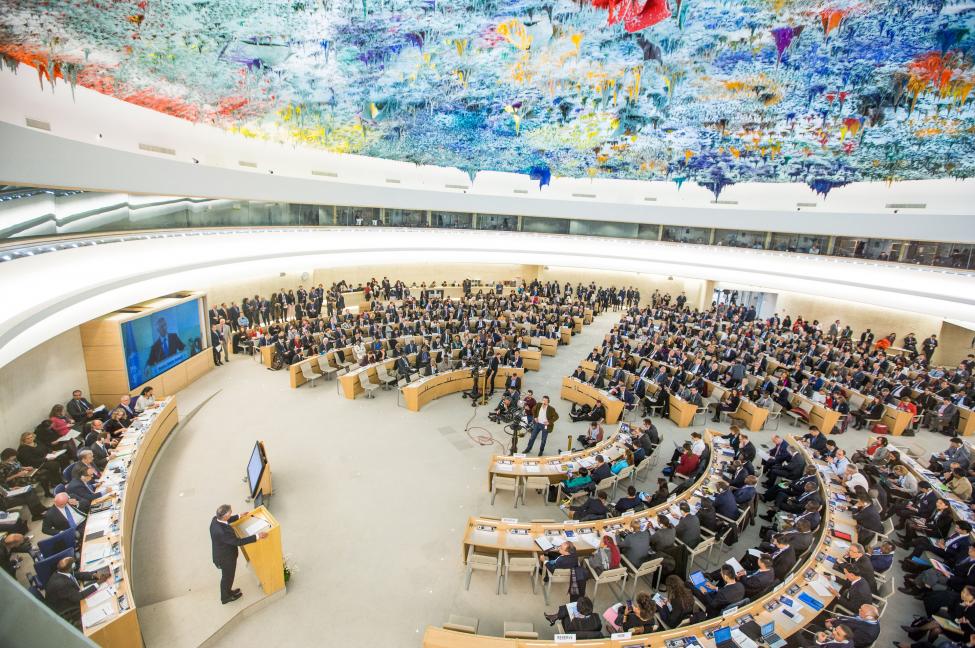5 March 2019 – Americans for Democracy & Human Rights in Bahrain (ADHRB) takes this opportunity at the 40th Session of the Human Rights Council, during the Clustered Interactive dialogue with the Special Rapporteur on Religion and the Special Rapporteur on the Sale of Children to raise attention to the Bahraini government’s recurrent infringement on freedom of expression and freedom of religion. In the intervention, ADHRB discusses the oppression of the Shia Muslim community, including those held in prison. Please continue reading for the full text of the statement, or click here for a PDF.
—
Mr. President,
ADHRB welcomes the report of Special Rapporteur Shaheed, and would like to draw his attention to the violation of the inter-related rights of free expression and religion in Bahrain.
In July 2017 King Hamad bin Isa Al Khalifa issued the Bahrain Declaration on Religious Tolerance. This declaration is devoid of substance. Not only does the Bahraini government not tolerate religious freedom and dialogue, it violates the religious freedom of its citizens on a daily basis.” In September 2018 and as early as 2019, multiple Shia clergymen were arrested over the content of their sermons ahead of the Shia Ashura commemorations and other religious services.
Additionally, riot police were used to disperse crowds during religious processions in Ashura, in a clear violation of both the rights to free expression and religion or belief. Importantly Bahrain prevents members of the majority Shia community from serving in the country’s military and security forces, those bodies responsible for abuses, in another example of how the King’s claim of religious tolerance doesn’t meet reality.
These restrictions are not limited to street processions, but are also enforced in prisons and detention centers. In Jau Prison, prisoners reported being held in solitary confinement for eight days for possessing items and inscriptions commemorating Ashura. In the women’s prison at Isa Town, detained human rights defenders and activists Hajer Mansoor Hasan, Najah Habib Yusuf, and Medina Ali AbdulMohsen were prevented from participating in religious rites to commemorate Ashura.
In light of these events, what recommendations do you have for Bahrain to encourage it to create a fully inclusive environment that respects the rights of freedom of religion and expression? In addition, have you requested a visit to Bahrain?
Thank you.





